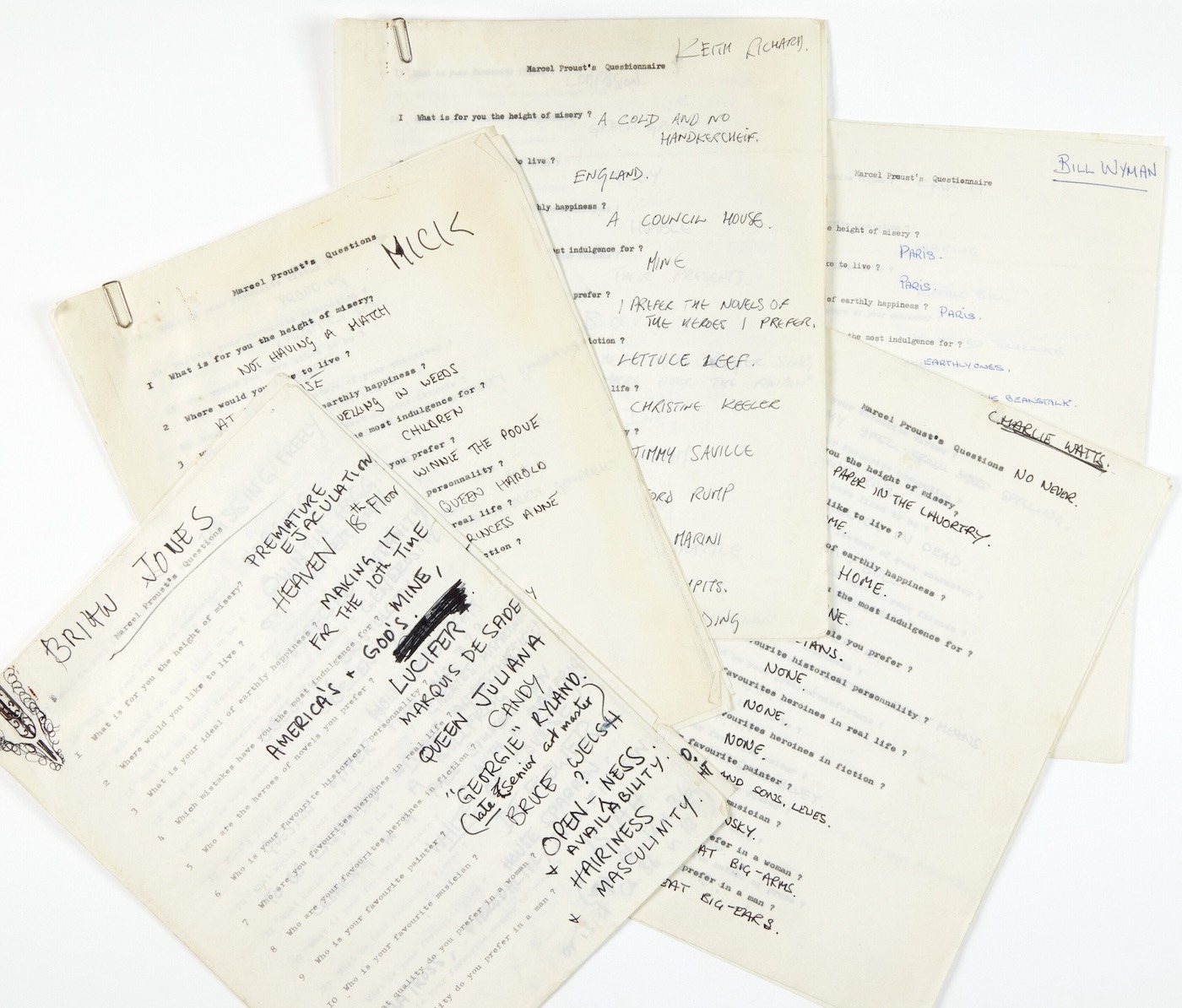The ROLLING STONES answer Proust's questionnaire.
Typewritten documents with signed autograph notes.
Fifteen quarto pages in total, or five three-page questionnaires.
March 1966.
________________________________________________________
An extraordinary, comprehensive set of five Proust questionnaires, fully completed and signed by members of the Rolling Stones: Mick Jagger, Keith Richards, Brian Jones, Charlie Watts, and Bill Wyman.
Mick Jagger would like to be a Beatle!
Throughout these pages, the Stones' answers oscillate between amusement, provocation, and sincerity. Some of these seem incredible and sensational, especially when Mick Jagger is asked what he would like to be and he writes in the margin, in capital letters, "A Beatle"!
A personality like Charlie Watts does not seem, at least at first, to take the questionnaire seriously by answering the same word several times, while Brian Jones uses all the available space on the sheet to write.
From these manuscripts emerges the personality of each of the artists tinged with derision, as follows, as examples:
“What is the height of desolation for you?”
"Not having matches" for Jagger,
"having a cold without a tissue" for Richards,
"premature ejaculation" for Jones, "Paris" for Bill Wyman,
"not having toilet paper" for Watts.
“Who is your favorite historical figure?”
“Queen Harold” for Jagger.
“Jimmy Saville [famous TV presenter] for Richards.
"The Marquis de Sade" for Jones.
“Wilson Churchill” for Wyman.
"none" for Watts.
“What is your favorite quality in a woman?”
"His masculine side" for Jagger.
"understanding" for Richards.
“openness, availability” for Jones.
"poor quality" for Wyman.
"big arms" for Watts.
In 1966, the world was living to the rhythm of Swingin' London. Mary Quant and the shops of Carnaby Street were dressing new fashion icons, such as model Twiggy and singers Marianne Faithfull and Sandie Shaw.
Obviously, music plays a fundamental role: The Beatles release Revolver , which inaugurates the psychedelic era, the Scottish troubadour Donovan invents baroque folk rock with Sunshine Superman, the Who become the Mod group.
Finally, the Rolling Stones! Considered by the media as the dark, Machiavellian version of the Fab Four (The Beatles), the London gang made headlines with Aftermath . With this fourth LP, the Stones reached a new milestone, not only because it was the first album made up of original compositions, all by Jagger-Richards, but also because the group as a whole confirmed its "politically incorrect" image.
Thus, it is with a cynicism that he speaks of the daily lives of housewives in Mother's Little Helper and with a certain taste for provocation and sarcasm that he defends the right to misogyny in Under My Thumb . In a word, and to borrow the title of one of their songs, Mick Jagger, Keith Richards, Brian Jones, Bill Wyman and Charlie Watts remain "those who grew up badly".
A tiny fraction of these responses were published in 1981, apart from those of Brian Jones, which were deemed unpublishable at the time.

